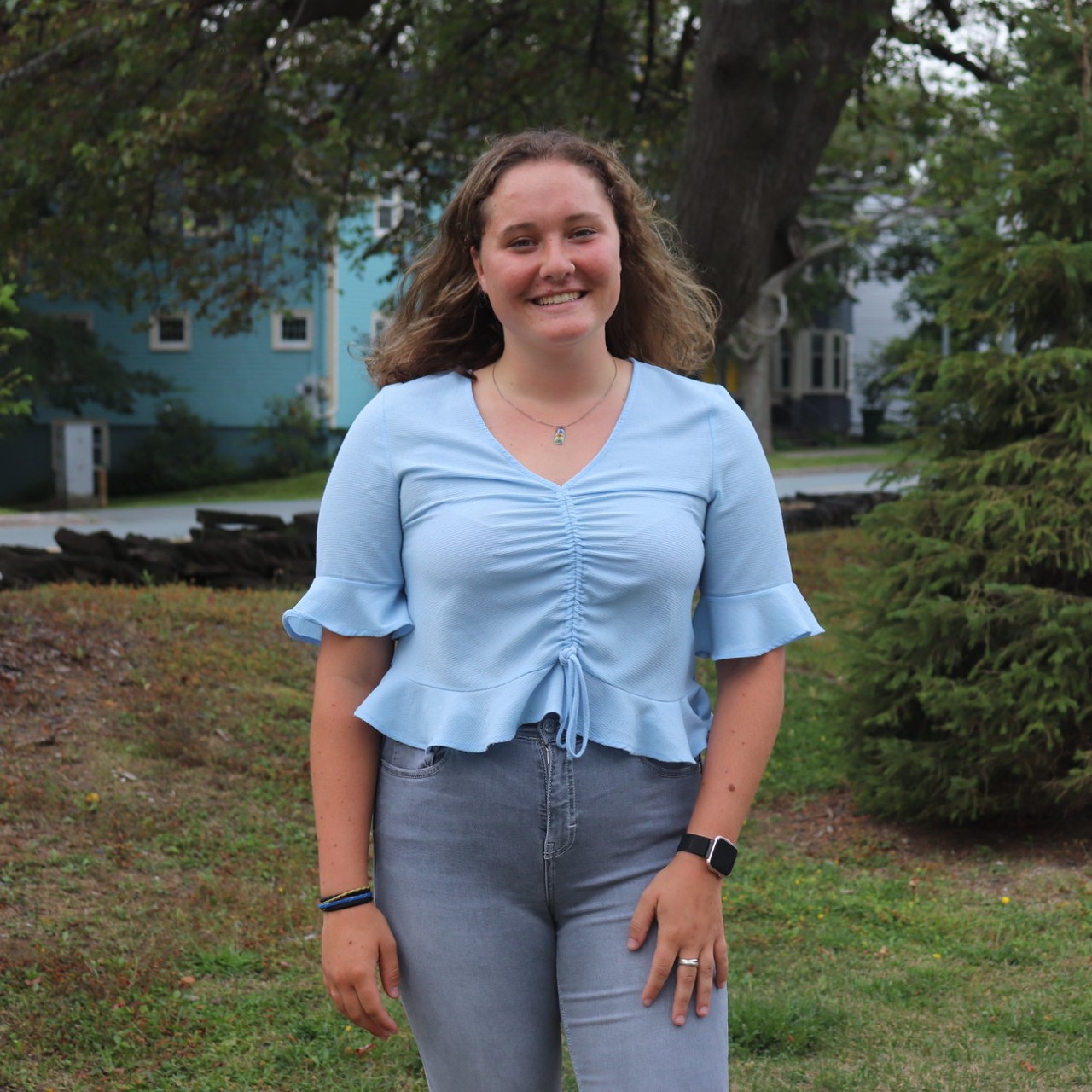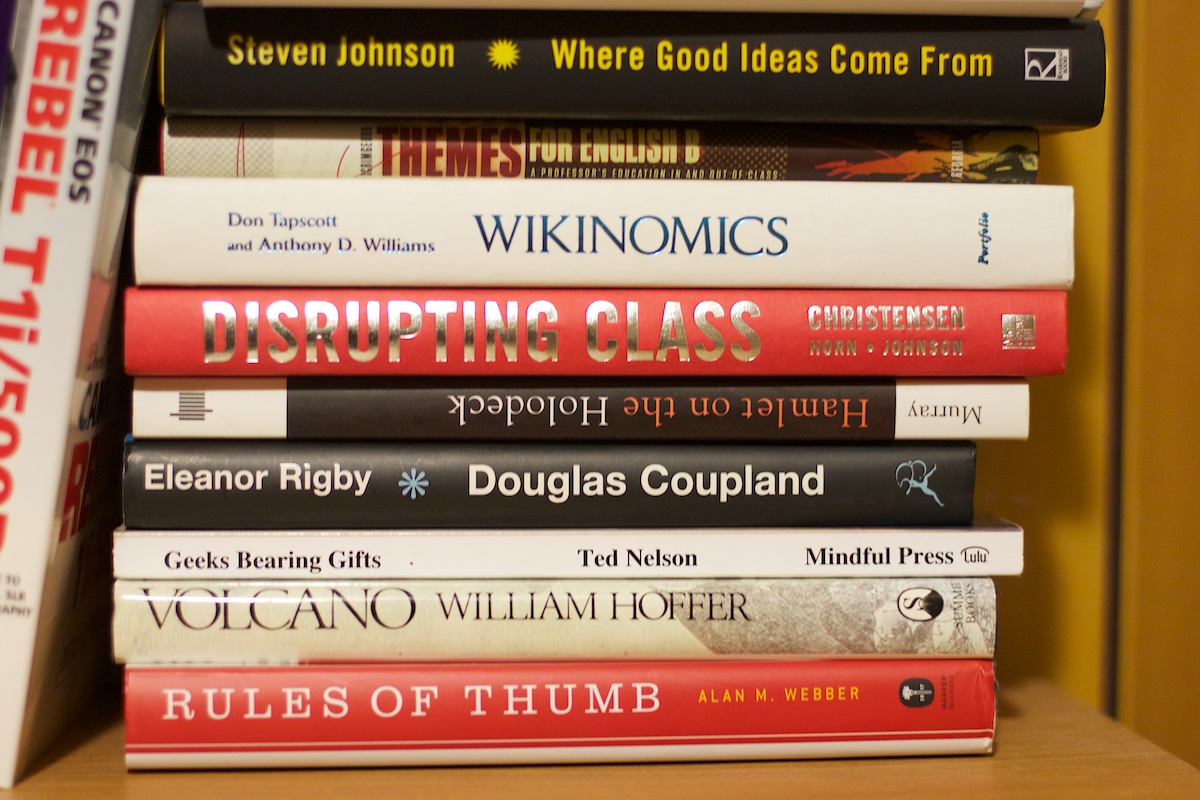With course selection upon us, it can be difficult to get into those popular electives that fill up fast (think History of Rock and Roll and Human Sexuality). Searching the entire timetable can be exhausting as well, so we’ve done that for you and compiled some cool electives to check out below! All of these courses have NO PREREQUISITES (unless noted) and could help spark your interest in a new subject!
INDG 1000: Mi’kma’ki
This course will provide a grounding in the unceded territory of Mi’kma’ki and the broader Wabanaki Confederacy from the perspective of the Mi’kmaq, who call themselves L'nu'k. Drawing on a number of disciplines including history, geography, and sociology, the course will support students to make connections between territory and Mi’kmaw language, culture, and identity. This course will prepare students to pursue additional work in Indigenous Studies by providing a grounding in the territory as seen from the perspective of its First People.
Arch 1001: Intro to Architecture 1
This course introduces recurring themes in architecture: site, function, history, materiality, and expression/social commentary. Lectures are complemented by design exercises that apply conventions of architectural drawing. The course is for students with an interest in architecture as part of a well-rounded education, and for those who are considering an architectural career.
ERTH 1060: Natural Disasters
This course, aimed at the non-specialist, investigates these intriguing questions. Excerpts of “disaster films”, in conjunction with lectures and discussions are used to identify the causes, consequences and sometimes erroneous perceptions of natural hazards. Examples from Atlantic Canada and contemporary disasters are used to assess local risk and real-time events worldwide.
EURO 2102: Europe: Ideas, Culture and Society from 1900 to the Present
A multidisciplinary introduction to European Studies beginning in the 20th century. Classes look at the interconnecting themes among literature, the arts, philosophy and society in contemporary Europe.
GWST 2011: Queering Foundations
This class will introduce you to concepts in queer theory, which are analyses that challenge identity categories by examining how those identities are constructed socially. Weekly lectures will bring a critical lens to how gender and sexuality are constructed historically and contemporarily, and in relation to other markers, such as race, ethnicity, or socio-economic class. Readings will introduce queer theory terms and demonstrate how to analyze language in relation to power. You will discuss the theory we read, reflect on its connection to your own experience, and apply the theories to contemporary representations of gender and sexuality.
GEOG 2800: Climate Change
Most models of the atmosphere predict that increasing concentrations of greenhouse gases will continue to warm the surface of the earth and the oceans in the twenty-first century. The magnitude of the warming and its consequences are still very controversial. This class will discuss, mainly from a nonmathematical viewpoint, the reasons for the greenhouse effect, the current warming in the context of the historical record of climate change, and sources of natural climate variability such as the El Nino Southern Oscillation. It will also review arguments that attribute the warming that has occurred in the Twentieth century to natural variability, and those that attribute the warming to increased human emission of greenhouse gases.
HSTC 2210: Engineering the Planet
This course explores the notion of the Anthropocene, the idea that the Earth has been significantly and permanently altered by human activity. Through the lens of environmental history, the course examines the material, social, political, and conceptual technologies used to relate and manipulate environments over the last 12 000 years.
RELS 2120: Magic, Science and the Occult: from Antiquity to Postmodernity
A perennial source of fear and fascination, magic and related forms of 'occultism' (e.g. alchemy and astrology) have been dismissed as pseudo-science and even stigmatized as 'Satanism'. This course aims to recover the original meaning of occultism from the perspective of the practitioners of magic. It explores the origins and development of the 'occult sciences', highlighting their often-overlooked contributions to the history of science, and their continuing evolution in the modern world.
PHIL 2165: Philosophy and the Black Experience
This is an introduction to Africana philosophy, that is, philosophy by and about people of African descent. It will begin with a brief look at philosophical thought in precolonial Africa and then turn to consider philosophical thought produced in the wake of slavery and colonization.
CANA 2210: Many Canadas: Canada, 1930 to the present
This course explores the remaking of Canada, including the shift from imperial to continental and nationalist politics, the rise and transformation of third-party political movements, and the emergence of new ideas about the rights and responsibilities of the liberal individual subject.
SOSA 2403: Food Activism
In this course we will explore food movements and alternative food practices, especially in relation to the modern food system. We will discuss the key characteristics and critiques of the food system and focus on case studies of cultural practices and food activism from around the world which challenge or provide alternatives to the current food system.
MGMT 2805: Introduction to Indigenous Governance
*must be at least 2nd year standing
This course focuses on the traditional political cultures of Indigenous peoples within Canada as well as the fundamental issues facing Indigenous communities. This introductory course will provide students with the necessary background and conceptual framework that will equip them with a better understanding of Indigenous Governance.
CHIN 2052: East Meets West in Popular Culture
*restricted to students 2nd year and above
This course is devoted to examining intersections between “West” and “East” through the study of cross-cultural influences in popular literature, cinema, music, and comics in Europe, North America, and East Asia.
FILM 3915: Stars and Stardom on Stage and Screen
What makes a ‘star’ actor? How do stars’ gifts and idiosyncrasies interact with the possibilities of their media and with market forces to create celebrity? This course explores stage and screen stardom as historical, aesthetic, and economic phenomena that illuminate shifting constructions of beauty, class, gender, sexuality, race, and ethnicity.
POLI 3510: The Politics of Pandemics
This course considers the relationship between plague and politics, both theoretically and in practice. We will consider some of the most pressing questions that contagion has posed to and revealed about the political communities they infect and affect. For example, what do contagions and the public crises they induce teach us about fear and risk in political life? How have and should political communities balance individual freedoms against collective well-being and what do these choices reveal about that polity’s deeper ethical and political commitments? Which pandemic responses strengthen communities and which contribute to their breakdowns? How do communities assign blame and responsibility for health crises and what are the larger socio-political repercussions of these choices?
ASSC 3150: Intercultural Communication
*open to any undergraduate student who has completed at least 45 credit hours, or any graduate student
In this highly interactive course, students will study and apply key concepts of intercultural communication with the goal of developing an empathic understanding of other cultures and an ability to communicate effectively across cultures. Topics include: Awareness of one’s own culture (values, norms) and of variations within it; verbal and nonverbal elements of communication, hierarchy ("power distance"), collectivism vs individualism, direct/indirect communication styles, conflict management styles.
CRWR 3410: Writing for Children: Picture Books
*PREREQUISITES: Completion of CRWR 2000.06 or CRWR 2002.03; or 60.0 credit hours, including 6.0 credit hours at the 1000 level in ENGL, CRWR, KING or PERF
This is a hands-on writing workshop for beginning writers of children’s picture books. We will generate ideas for stories through writing activities, explore picture book writing tools and technique, consider contemporary and classic texts, and develop our works-in-progress by giving and receiving constructive feedback. While the focus of this course is on writing and peer critique, you will also learn something of the children’s book market and the business of publishing picture books.
ENVS 3200: Introduction to Environmental Law
*Must be a 3rd year student or above
This course will take a look at how environmental law operates in Nova Scotia within the Federal framework and it will illustrate some of the multi-disciplinary aspects which make this area of law part science, part art and part soothsaying.
SCIE 3211: Communicating Science to Non-Scientists
*must be a BSc. Student and have completed 60 credit hours (likely 3rd year or above)
In this course, science students learn and practice core concepts of communicating science to a non-scientist audience. Multiple forms of delivery are discussed, practiced, and critiqued, including written, oral, and visual. The impact of social media on the ways in which scientists communicate with the public are also explored.
FOSC 4081: Brewing Science
This course will examine unit operations employed during the production of malt and beer. Brewing, fermentation, maturation, and packaging aspects of beer production as well as brewing quality assurance, colloidal, flavour and haze stability will be discussed. Practical experience in brewing beer and in quality analysis will be provided in the Labs.
BIOL 4004: Principles of Indigenous Medicine
*recommended for students 3rd year and above
A holistic, two-eyed seeing course highlighting indigenous medicine’s principles in ceremony, concepts of health and wellness, biochemistry, ethnopharmacology, practice and discovery. This course introduces indigenous ways of knowing medicine, important natural products, their biosynthesis, the drug discovery process, synthetic biology and indigenous style formulations and medicine practices.

